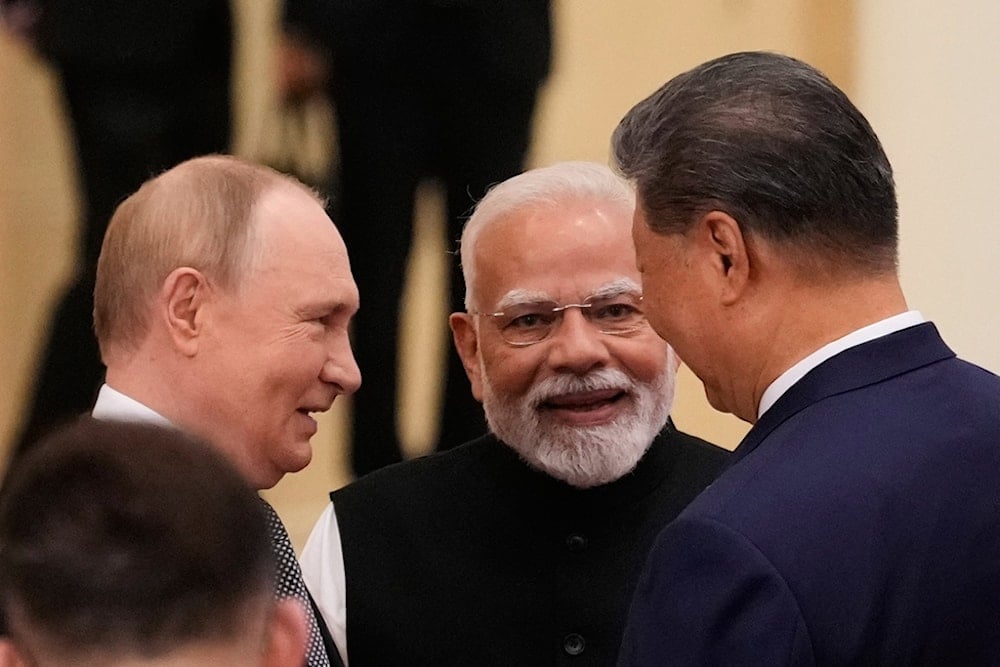Xi's SCO summit focused on uniting leaders, countering US
Xi Jinping hosts the SCO summit with Putin, Modi, and Lukashenko, highlighting shared grievances with US policy and China’s push for global influence.
-

Russian President Vladimir Putin, Indian Prime Minister Narendra Modi, and Chinese President Xi Jinping talk ahead of the SCO summit at the Meijiang Convention and Exhibition Center in Tianjin, China, Monday, Sept. 1, 2025. (Pool Photo via AP)
Chinese President Xi Jinping opened a major summit of the Shanghai Cooperation Organization (SCO) in Tianjin on Sunday, welcoming leaders including Russia’s Vladimir Putin, Belarus’ Alexander Lukashenko, and India’s Narendra Modi. The gathering underscored Beijing’s bid to present itself as a reliable partner and counterweight to the US-led order, The Washington Post highlighted on Monday.
In his address, Xi urged member states to “oppose hegemony and power politics,” an indirect rebuke of US foreign policy under President Donald Trump. He also proposed deepening economic integration by creating an SCO development bank and pledged an additional $1.4 billion in loans to members over the next three years, complementing the $84 billion China has already invested.
While Beijing emphasized economic opportunity, many leaders, according to WashPo, are expected to remain in China for a military parade in Beijing marking the 80th anniversary of World War II’s end, with Putin and possibly the DPRK’s Kim Jong Un joining Xi on the reviewing stand.
Friction and strategic calculations
Analysts note that the SCO’s strength lies less in policy unity than in shared frustration with Washington. “These are big countries with their own agendas,” said Carla Freeman of Johns Hopkins University, pointing to the bloc’s broad but fragile alignment.
Modi’s attendance, his first in China in seven years, signaled a cautious thaw between Beijing and New Delhi. Yet, lingering mistrust was evident: while Xi downplayed border disputes, Modi insisted that peace along the frontier remained “essential” for improving ties, according to The Washington Post.
Founded in 2001 by China and Russia as a security forum, the SCO has since broadened its mandate to trade and political coordination. It now counts 10 full members, including Iran, India, Pakistan, and Belarus, with Turkey, Egypt, and Saudi Arabia among its dialogue partners.
China’s strategic ambitions
Beijing has promoted the bloc as representing 40% of the world’s population and a quarter of the global economy. Xi also announced support for the accession of Armenia and Azerbaijan, even as their relations remain tense despite a recent framework deal in Washington.
By hosting the forum, Beijing is able to project solidarity with governments facing Western pressure, such as Iran and Myanmar, while promoting its Belt and Road Initiative. Analysts say this reflects Xi’s ambition to expand China’s global role.
“Even if it’s more talk than action, the SCO gives China a platform to shape an alternative vision of world order,” Freeman said.

 3 Min Read
3 Min Read








